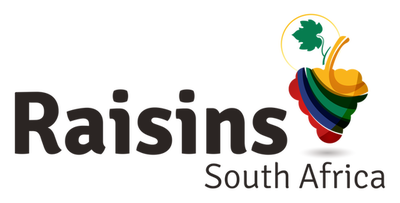Northern Cape Business 2023/24

Supporting transformation and raising the quality bar
New funds for new growers, a new training academy and improved standards are all on
the agenda of this dynamic sector, reports Raisins SA’s Chief Executive Officer, Ferdie Botha.
New funds for new growers,
a new training academy and improved standards are all on
the agenda of this dynamic sector, reports Raisins SA’s Chief Executive Officer, Ferdie Botha.


Ferdie Botha, Chief
Executive Officer

Ferdie is an experienced agricultural economist with 16 years’ experience in the agri-sector. He joined the dried-fruit industry in 2017 to concentrate on his career as an agricultural economist and expand his skills set. He has played an instrumental role in the restructuring of the dried-fruit industry. Once this reform was successfully implemented, he was tasked to refocus the national raisin industry association, Raisins SA, setting a new vision and driving strategic priorities.

How many members does Raisins SA represent?
Raisins SA represents approximately 700 growers. The main areas for raisin production are in the Orange River Valley (Northern Cape) and Olifants River Valley (Western Cape). The Northern Cape produces 84% of South African raisins: the climate is hot and dry, with ample water and land to grow the finest raisins globally.
Do farmers specialise, or do they have both table grapes and raisins?
Most farmers are diversified, growing various crops such as raisin, table and wine grapes. Dedicated grape cultivars are used for the production of the aforesaid product categories. Raisin production comprises different product types which include Thompson raisins (dark brown), goldens (bright golden, pictured), OR raisins (light brown to greenish) and currants (small berries, primarily used for baking).
How is the sector improving sustainability?
Sustainability addresses how a sector or industry positions itself in terms of People, Profit and Plant (PPP), hence following a balanced approach in its quest to grow and develop over time.
Raisins SA’s strategy addresses all three spheres of sustainability. Firstly, understanding that its natural resources water and land are key production factors that should be preserved and used efficiently. Research on water quality and soil health are among the industry’s priorities. From a people perspective, industry comprehends the importance of the social wellbeing of its community. Various enterprise, skills and socio-economic development activities are performed by the organisation. Importantly, economic viability is key to having a thriving local economy that can support both job and wealth creation. Strong research and a market-orientated approach is fundamental to ensuring that the South African raisin value chain remains competitive internationally.
What are the areas where quality is being improved?
Quality starts at farm level, where emphasis is placed on best practices to ensure vineyards are healthy and free of pests and diseases. Pruning and harvesting techniques are world class to ensure that optimal production levels are achieved, coupled with quality fruit. In 2017, SA GAP, a certification programme, was introduced to the SA raisin industry. This aims to uplift the drying facilities and to improve traceability, enhance food safety and ensure best practice in terms of hygiene.
Which countries are the biggest markets for SA raisins?
The main export destinations for South African raisins are Europe, the USA and Canada.
Has the Russian invasion of Ukraine affected export volumes?
We have not seen a material, direct effect on our export volumes due to the invasion. The indirect effects of the invasion (inflation, economic crises) have had a more substantial impact at grower level, through rising input costs. Furthermore, the war has created uncertainty globally and has placed consumers under pressure from a purchasing power perspective. Hence, reduced demand as rising fuel prices have impacted disposable incomes.
Do you have programmes to support small growers and transformation?
Yes, 20% of our annual levy income is earmarked for transformation in the industry, as recommended by the National Agriculture Marketing Council. The transformation portfolio mainly focuses on enterprise development, skills development and socio-economic development. Raisins SA has been successful in securing approximately R50-million additional funding for its emerging growers over the next five years from funding partners.
Do you have any special projects?
A new strategic industry-led initiative called the Vine Academy and Model Farm has been developed over the past 24 months. Raisins SA has identified two key challenges, namely: human-resource capabilities for the general labour market and young professionals entering the sector, as well as research and development capabilities.
The Vine Academy will have the first intake of students on 17 July 2023. Accredited courses focusing on vineyard management from NQF level 2-7 will be offered, with various short courses and practical training incorporated into the programme.
There are various trials already in process on the Model Farm, including rootstock trials, research on various drying methods, irrigation trials and cover crops in vineyards.
For more information on the Vine
Academy and Model Farm, please contact

